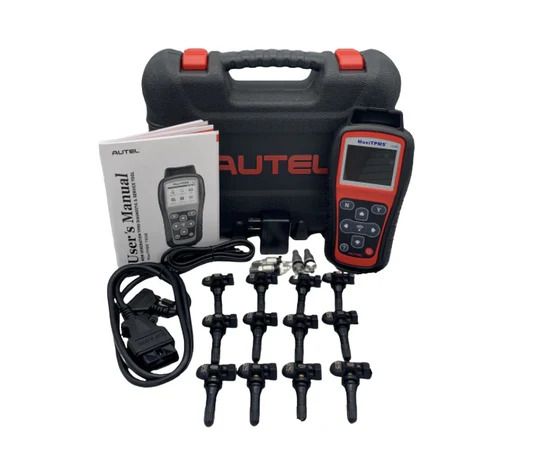How TPMS Failures Lead to Unsafe Driving: The Role of Autel TPMS Sensors

Every year, thousands of accidents occur due to underinflated tires. According to the National Highway Traffic Safety Administration (NHTSA), tire-related crashes cause over 600 fatalities annually in the U.S. alone. Many of these accidents could be prevented with a properly working Tire Pressure Monitoring System (TPMS).
When TPMS fails, drivers lose real-time tire pressure updates. This increases the risk of blowouts, poor handling, and reduced fuel efficiency. A faulty TPMS gives a false sense of security, making it difficult to detect low tire pressure until it’s too late. To prevent these risks, using a reliable Autel TPMS tool is crucial for proper maintenance.
Why Do TPMS Sensors Fail?
TPMS sensors are built to last, but like any electronic device, they can malfunction. Several factors can cause failures:
Most TPMS sensors run on built-in batteries with a lifespan of 5–10 years. Over time, these batteries weaken, causing the sensor to stop sending signals. Once the battery dies, the entire sensor needs to be replaced.
Hitting potholes, curbs, or debris can damage TPMS sensors. Even minor impacts can affect sensor performance, leading to inaccurate pressure readings or total failure.
TPMS components, especially metal valve stems, are exposed to moisture and road salt. Corrosion can weaken the sensor structure, causing leaks or communication failures.
Improper sensor placement or incorrect programming can lead to malfunctions. Using the wrong TPMS tool or skipping the relearning process may prevent the system from detecting new sensors.
5. Interference or Signal Issues
Radio frequency interference from other devices can disrupt TPMS communication. If the signal is blocked, the system may not receive accurate pressure data from the sensors.
How TPMS Failures Impact Driving Safety
Low tire pressure makes tires more vulnerable to overheating and sudden failure. A blowout at high speeds can cause a driver to lose control, leading to severe accidents.
Underinflated tires create more rolling resistance, forcing the engine to work harder. This increases fuel consumption, leading to unnecessary expenses at the pump.
Incorrect tire pressure causes uneven tread wear. This reduces tire lifespan, increases replacement costs, and affects vehicle stability.
4. Reduced Braking Performance
Properly inflated tires ensure better grip on the road. Low pressure reduces traction, making it harder to stop quickly in emergencies.
Preventing TPMS Failures with Reliable Tools
Regular TPMS maintenance is the best way to avoid failures. Here’s how drivers can keep their system in top shape:
- Check tire pressure manually at least once a month, even if TPMS is working.
- Replace faulty sensors immediately to avoid inaccurate readings.
- Use a quality TPMS diagnostic tool to detect sensor issues early.
- Ensure correct sensor installation when replacing tires or batteries.
- Avoid road hazards that could damage sensors.
Recap Highlights
TPMS failures put drivers at serious risk. Ignoring faulty sensors can lead to dangerous situations, from tire blowouts to reduced vehicle control. Proper maintenance and the use of high-quality Autel TPMS sensors help ensure accurate tire pressure monitoring, improving safety and performance on the road.
